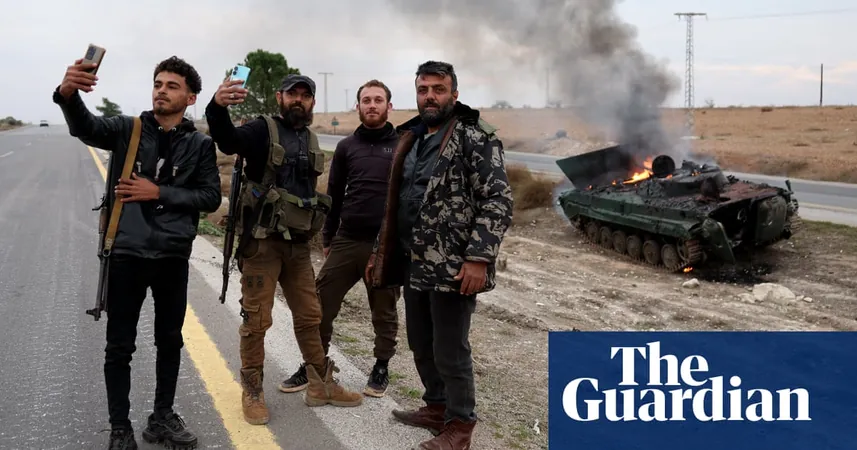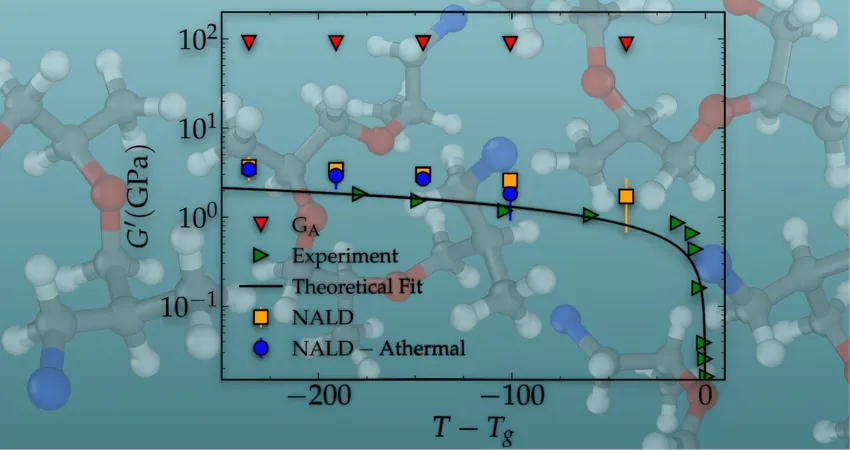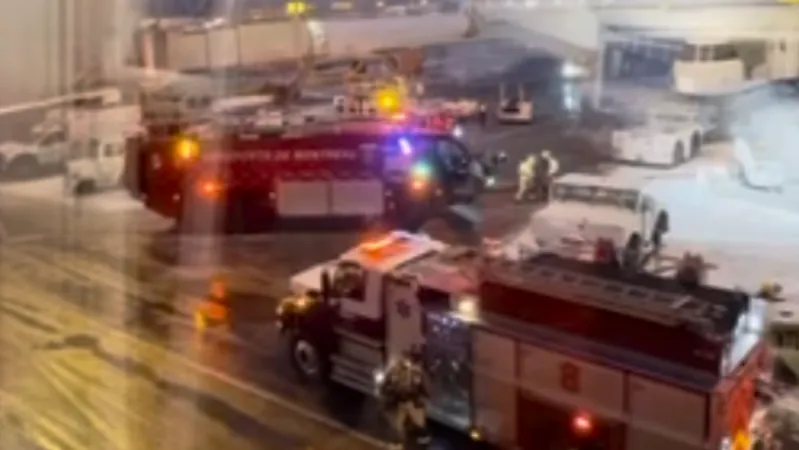
Syrian Rebels Capture Damascus: A New Era Begins
2024-12-08
Author: Amelia
Syrian Rebels Capture Damascus: A New Era Begins
In a stunning development, rebel forces have proclaimed the capture of Damascus, declaring the city “free” from the rule of President Bashar al-Assad, who has dominated Syria for over five decades. “After 50 years of oppression under Baath rule and 13 years filled with crimes and forced displacements, we announce today, December 8, 2024, the end of this dark period and the start of a new era for Syria,” the rebels announced in a statement.
Amidst these claims, chaotic scenes erupted in the capital. Videos circulating on social media depict Syrian army soldiers discarding their uniforms in the streets, signaling a potential collapse of government authority. The rebels have also begun efforts to release detainees from Sednaya prison, a facility infamous for its brutal conditions.
As dawn broke, revelers celebrated in the streets. Footage captured rebels firing celebratory shots into the air while chanting “Allah Akbar.” This jubilant atmosphere follows reports that President Assad may have fled the country, leaving the future of Syria uncertain. Crowds climbed on military tanks, chanting and celebrating the perceived end of Assad's regime.
In response, Syrian Prime Minister Mohammed Ghazi Jalali released a video statement indicating the government’s willingness to engage with opposition forces and consider a transitional government. “I am in my house, and I have not left, as this is my love for my country,” he declared, although he did not address rumors about Assad’s departure or the current status of the government.
The Syrian Observatory for Human Rights, a monitor for the ongoing conflict, confirmed reports indicating that Assad had indeed left Syria. Observatory chief Rami Abdel Rahman stated, “Assad left Syria via Damascus International Airport right before security forces abandoned their posts.” This was corroborated by reports from heavyweight regional media, asserting that the president has not made a public appearance in days.
If control of Damascus is fully transferred to the opposition, the Assad regime would control just two out of 14 provincial capitals: Latakia and Tartus, which have been key areas of his support.
Adding to the momentum against the Assad regime, Syrian rebel commander Hassan Abdul-Ghani announced that the central city of Homs has been “fully liberated.” Celebratory scenes erupted in Homs, where images and statues glorifying the Assad family were reportedly destroyed. The fall of Homs represents a significant strategic blow to Assad, given its critical position between the capital of Damascus and Syria’s coastal provinces.
The international community is closely monitoring these developments. U.S. President Joe Biden expressed a keen interest in the “extraordinary events” unfolding in Syria, with National Security Council spokesman Sean Savett stating that the administration is maintaining close contact with regional partners.
Notably, incoming President Donald Trump has conveyed that the U.S. should avoid military involvement in the ongoing conflict, branding the situation as “NOT OUR FIGHT” in a social media post.
Meanwhile, the UN's special envoy for Syria, Geir Pedersen, has urged for urgent discussions in Geneva to facilitate an orderly political transition amid the rapidly evolving situation. Russian Foreign Minister Sergei Lavrov expressed sympathy for the Syrian populace, emphasizing the need for a peaceful resolution to the ongoing turmoil.
The events in Syria are rapidly changing, and the world watches closely as the fate of the nation hangs in the balance. Will this truly mark the end of the Assad family's reign, or is this just the beginning of another chapter in Syria’s tumultuous history?









 Brasil (PT)
Brasil (PT)
 Canada (EN)
Canada (EN)
 Chile (ES)
Chile (ES)
 España (ES)
España (ES)
 France (FR)
France (FR)
 Hong Kong (EN)
Hong Kong (EN)
 Italia (IT)
Italia (IT)
 日本 (JA)
日本 (JA)
 Magyarország (HU)
Magyarország (HU)
 Norge (NO)
Norge (NO)
 Polska (PL)
Polska (PL)
 Schweiz (DE)
Schweiz (DE)
 Singapore (EN)
Singapore (EN)
 Sverige (SV)
Sverige (SV)
 Suomi (FI)
Suomi (FI)
 Türkiye (TR)
Türkiye (TR)